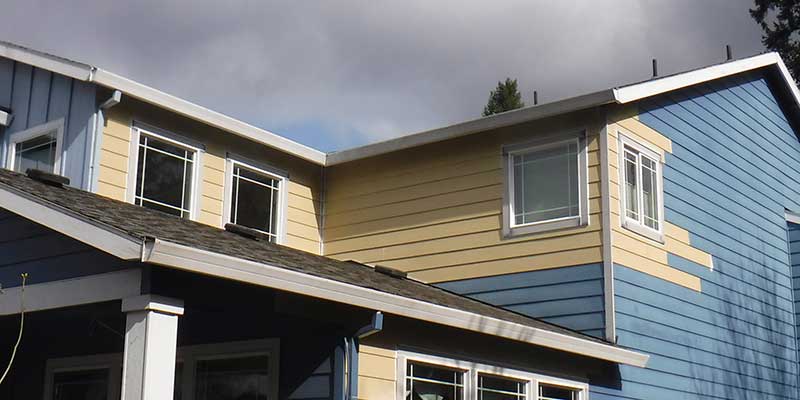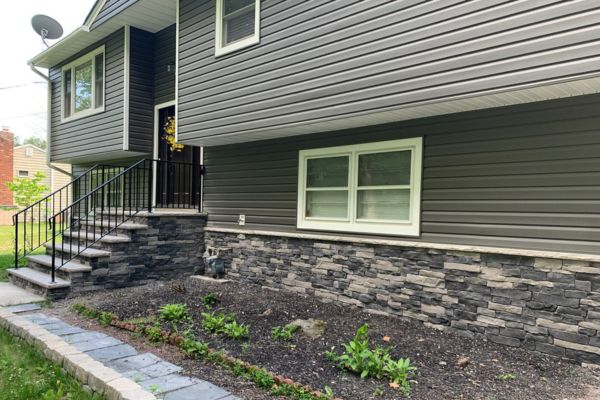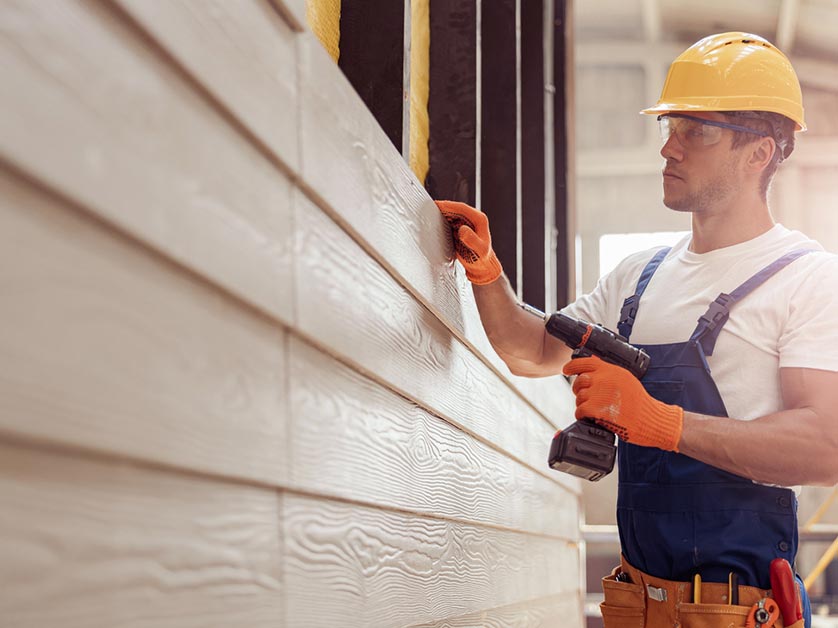Morris Siding Contractor with Years of Expertise in Home Exterior Upgrades
Morris Siding Contractor with Years of Expertise in Home Exterior Upgrades
Blog Article
The Crucial Guide to the Different Sorts Of Home Siding and Their One-of-a-kind Benefits
In the realm of home improvement, choosing the best siding is an essential decision that impacts both aesthetic appeal and functional efficiency. The range of products offered, such as timber, vinyl, fiber brick, steel, and cement, each deal unique advantages that cater to various demands and choices. Understanding these distinctions can significantly improve the durability and worth of a building - morris siding contractor. With so many alternatives to take into consideration, which home siding material absolutely stands out for your details task? Checking out these options can bring about educated decisions that line up with both design and practicality.
Timber Home Siding
Timber exterior siding, a preferred option for property outsides, uses an ageless aesthetic that integrates all-natural appeal with architectural integrity. This home siding product is available in various styles, consisting of clapboard, roof shingles, and board-and-batten, enabling homeowners to tailor their façade to match their layout choices. Timber home siding is commonly crafted from durable varieties such as cedar, redwood, or yearn, which are recognized for their durability and capability to hold up against ecological stressors.
One of the main advantages of timber exterior siding is its excellent insulation residential or commercial properties, which can contribute to energy effectiveness and reduced heating prices. Furthermore, timber house siding is eco-friendly, making it an eco-friendly option when sourced sustainably. Normal maintenance, consisting of paint or staining, can extend its lifespan and boost its appearance, enabling house owners to preserve the natural appeal of the wood.
Nevertheless, prospective downsides consist of susceptibility to insects, rot, and weather condition damages, requiring adequate treatment and maintenance - morris siding contractor. Despite these issues, when effectively looked after, wood home siding can give a gorgeous and durable remedy that boosts the character of a home while providing a cozy, inviting environment

Plastic Siding
Vinyl house siding has actually arised as a leading choice for house owners seeking a low-maintenance outside option that integrates toughness and cost. This functional product is crafted from polyvinyl chloride (PVC), making it resistant to various climate condition, including dampness and UV rays. Consequently, vinyl exterior siding does not warp, rot, or fade, guaranteeing resilient aesthetic allure.
Among the main benefits of plastic home siding is its substantial range of designs and shades, allowing homeowners to attain the preferred appearance for their property without the need for constant repainting. Additionally, plastic exterior siding is very easy to set up, which can considerably lower labor costs throughout construction or improvement jobs.
Plastic home siding also contributes to energy efficiency. Several alternatives feature insulation support, which improves thermal efficiency, helping to keep comfortable interior temperatures and potentially decreasing energy bills. Its smooth surface area helps with easy cleansing, requiring just regular washing with a garden hose pipe to eliminate dirt and particles.
Fiber Cement Home Siding
Fiber concrete house siding has actually gotten grip amongst builders and homeowners alike as a result of its impressive combination of resilience and visual flexibility. Composed of a mixture of sand, cellulose, and concrete fibers, this house siding choice is crafted to endure severe climate conditions, including high winds, hefty rainfall, and temperature fluctuations, making it a long-lasting option for household outsides.

One of the key advantages of fiber concrete house siding is its resistance to parasites, such as termites, and its non-combustible nature, offering enhanced fire safety and security. morris siding contractor. Furthermore, it is readily available in a large range of styles, appearances, and shades, enabling homeowners to achieve their preferred aesthetic without sacrificing performance
An additional benefit is its low upkeep needs; fiber concrete exterior siding generally requires paint or discoloration every 5-10 years, which is less regular than various other materials. In addition, its long life contributes to a lower general expense of possession, as it minimizes the requirement for frequent repair services or substitutes.
Inevitably, fiber cement siding represents a superb investment for those looking for a resilient, attractive, and flexible outside option, integrating both form and feature to improve the home's curb allure.
Metal Exterior Siding
The allure of metal exterior siding exists in its durable toughness and modern aesthetic allure, making it a popular selection for contemporary design. Available Web Site in products such as light weight aluminum and steel, metal exterior siding offers a range of coatings and shades, enabling home owners to attain an individualized appearance that matches their design vision.

Energy efficiency is another significant benefit, as numerous steel house siding products are developed with insulation choices that aid control indoor temperatures. This can bring about reduced energy expenses with time. Furthermore, steel exterior siding is commonly recyclable, making it an eco-friendly selection for sustainability-minded house owners.
The installment procedure for steel home siding can be relatively simple, resulting in a quicker turnaround time for building tasks. Overall, steel house siding integrates functionality and design, making it a functional option for those looking for a enduring and visually attractive exterior surface.
Block and Stone Exterior Siding
Brick and stone home siding stands out as a classic choice that enhances the aesthetic charm of any type of home. Recognized for their sturdiness and low upkeep, these products supply an outstanding roi while raising the residential or commercial property's curb appeal. Readily available in numerous colors, textures, and patterns, brick and rock can be tailored to suit varied architectural designs, from conventional to modern-day.
Among the primary benefits of brick and stone home siding is their energy performance. Both materials possess all-natural protecting residential or commercial properties that help manage interior temperatures, potentially minimizing heating & cooling costs. Furthermore, they use remarkable fire resistance contrasted to other siding choices, adding to enhanced safety and security.
One more advantage is their longevity. Block and stone can last for years, commonly needing minimal maintenance beyond occasional cleansing. Unlike view it now timber house siding, they are unsusceptible pests and rot, making sure a durable exterior that withstands the aspects.
Final Thought
In recap, the option of home siding dramatically affects a home's aesthetic charm, energy effectiveness, and maintenance requirements. Each kind of home siding-- whether timber, plastic, fiber concrete, steel, or brick and stone-- offers special benefits tailored to various home owner preferences hop over to here and ecological problems.
One of the key advantages of timber siding is its exceptional insulation residential properties, which can add to energy efficiency and reduced home heating costs. Additionally, timber siding is naturally degradable, making it an eco pleasant choice when sourced sustainably.One of the key advantages of steel house siding is its resistance to different environmental aspects.Energy effectiveness is an additional substantial advantage, as lots of metal home siding items are created with insulation choices that help manage interior temperature levels. Each kind of exterior siding-- whether timber, plastic, fiber concrete, steel, or block and stone-- uses unique advantages customized to various house owner preferences and ecological problems.
Report this page